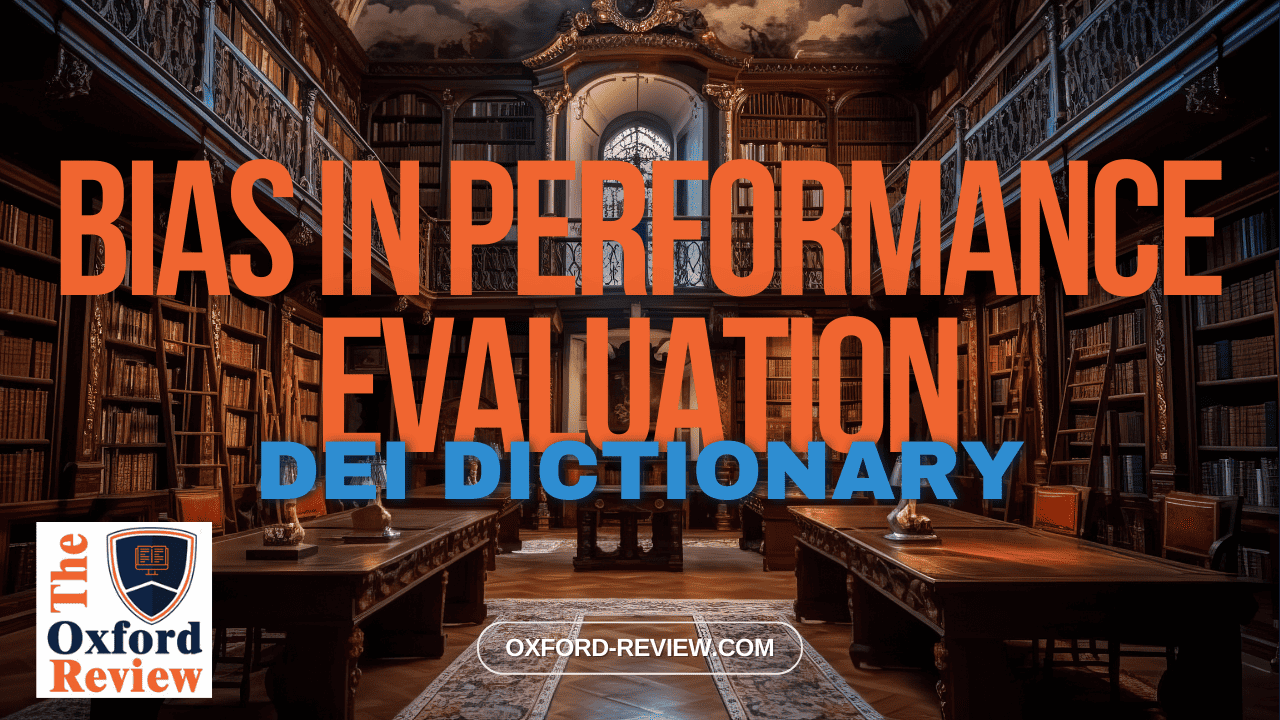Bias in Performance Evaluation – Definition and Explanation

Definition:
Bias in performance evaluation refers to the subjective judgments or prejudices that influence the assessment of an individual’s performance in the workplace. These biases can stem from various factors such as stereotypes, personal preferences, or unconscious prejudices, leading to unfair treatment and unequal opportunities.
Examples:
Consider a scenario where two employees, Alex and Taylor, both deliver similar results on a project. However, due to gender bias, Alex, a male employee, receives higher praise and a more favorable performance rating compared to Taylor, a female employee. This bias may be unconscious, but it has tangible effects on career progression and job satisfaction.
Another example involves cultural bias, where employees from diverse backgrounds may be evaluated differently based on cultural norms or stereotypes. For instance, a manager might unintentionally favor employees who share similar cultural backgrounds or communication styles, disadvantaging those from different cultural backgrounds.
Strategies to Mitigate Bias in Performance Evaluation:
- Implement Structured Evaluation Criteria: Establish clear and objective criteria for evaluating performance, focusing on measurable outcomes rather than subjective impressions. This helps reduce the influence of personal biases.
- Provide Training on Unconscious Bias: Offer training sessions for managers and evaluators to raise awareness of unconscious biases and their impact on performance evaluations. Educating staff can help them recognise and mitigate biases in their decision-making processes.
- Encourage Feedback and Calibration: Encourage open dialogue and feedback among evaluators to ensure consistency and fairness in performance assessments. Calibration sessions can help align evaluators’ perspectives and reduce the impact of individual biases.
- Diversify Evaluation Panels: Ensure diversity among evaluation panels to bring different perspectives and reduce the risk of bias. Including individuals from diverse backgrounds can help challenge assumptions and promote fair evaluations.
- Regularly Review Evaluation Processes: Continuously assess and refine performance evaluation processes to identify and address any biases that may arise. Solicit feedback from employees to gauge their perceptions of fairness and make necessary adjustments.
Conclusion:
Bias in performance evaluation poses significant challenges in fostering inclusive and equitable workplaces. By understanding the various forms of bias, implementing mitigation strategies, and fostering a culture of fairness and transparency, organizations can overcome these challenges and promote diversity, equity, and inclusion in their performance evaluation processes.
References
Prendergast, C., & Topel, R. (1993). Discretion and bias in performance evaluation. European Economic Review, 37(2-3), 355-365. https://edisciplinas.usp.br/pluginfile.php/159934/mod_resource/content/1/PT%201993.pdf
Moers, F. (2005). Discretion and bias in performance evaluation: the impact of diversity and subjectivity. Accounting, Organisations and Society, 30(1), 67-80. https://www.sciencedirect.com/science/article/abs/pii/S0361368203000977
Cawley, G. C., & Talbot, N. L. (2010). On over-fitting in model selection and subsequent selection bias in performance evaluation. The Journal of Machine Learning Research, 11, 2079-2107. https://www.jmlr.org/papers/volume11/cawley10a/cawley10a.pdf
Feldman, J. M., & Hilterman, R. J. (1977). Sources of bias in performance evaluation: Two experiments. International Journal of Intercultural Relations, 1(2), 35-57. https://www.sciencedirect.com/science/article/abs/pii/0147176777900414
Be impressively well informed

Get the very latest research intelligence briefings, video research briefings, infographics and more sent direct to you as they are published
Be the most impressively well-informed and up-to-date person around...
